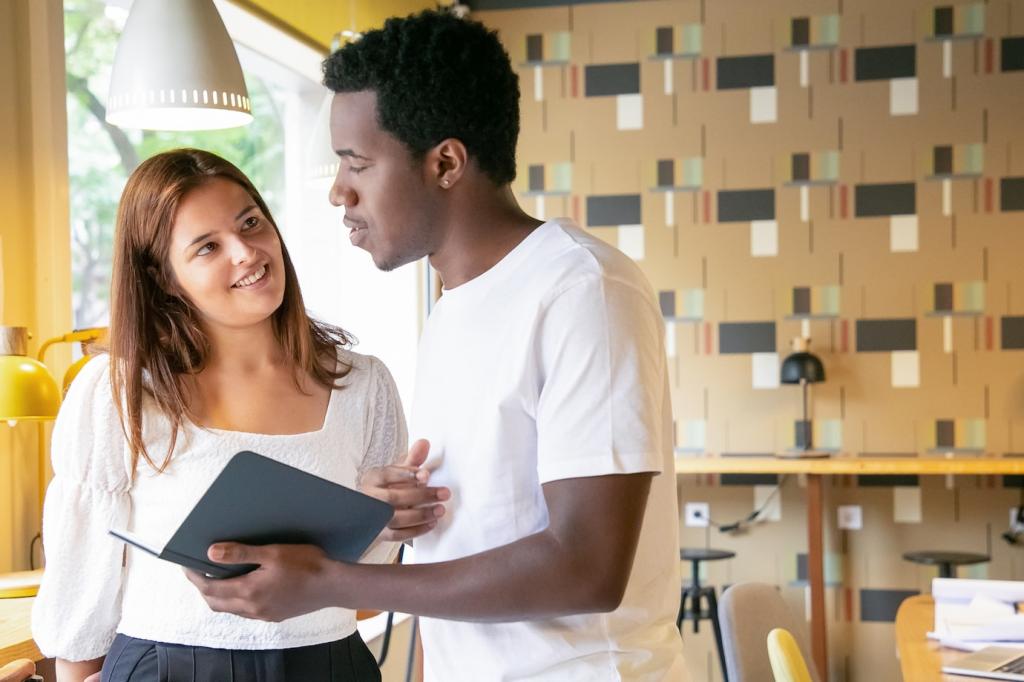
Guiding with Respect: Training for Cultural Competency in Tour Guiding
Chosen theme: Training for Cultural Competency in Tour Guiding. Step into a guiding practice where every story honors its people, every question opens a door, and every traveler feels seen. Join us as we learn, unlearn, and build tours that connect cultures with empathy and care—subscribe for fresh insights and training ideas.
Why Cultural Competency Matters on Every Tour
Guests bring identities, histories, and hopes onto your bus, bike, or walking route. When you pronounce names correctly, acknowledge sensitivities, and invite context, trust grows. Trust leads to better questions, deeper engagement, and glowing word-of-mouth. Tell us: what small action helped your group feel included?
Why Cultural Competency Matters on Every Tour
Training helps guides notice tricky moments before they escalate: offhand jokes, outdated terms, or assumptions about customs. Replacing myths with nuance prevents harm and embarrassment. Share a moment you rephrased a story mid-tour and what you learned; your example could help another guide tomorrow.
Learning Frameworks That Make Training Stick
Progress often moves from awareness to knowledge, then skill and adaptive behavior. You start by noticing differences, then learn histories, then practice responses in real time. Reflection cements change. What reflection routine—journaling, debrief circles, voice notes—helps you translate insight into action?
Communication Across Cultures: Words, Tone, and Silence
Reading High- and Low-Context Signals
Some guests expect direct answers; others listen for meaning between lines. Learn to check understanding gently, summarize options, and invite clarifying questions. Notice pacing, pauses, and smiles. Which cultures do you guide most often, and how do you adapt your explanations without stereotyping?
Nonverbal Cues and Personal Space
Gestures, eye contact, and distance preferences differ widely. A thumbs-up can charm in one region and offend in another. Practice neutral, open body language and ask before demonstrating gestures. What nonverbal tip do you teach new guides to prevent awkward or disrespectful interactions on tour?
Plain Language and Inclusive Translation
Avoid jargon and idioms that confuse non-native speakers. Offer summaries and check-ins. If you use interpreters, brief them about sensitive topics and preferred terms ahead of time. Do you provide printed key terms for guests? Share your best template and we will feature it next month.
Offer content warnings, provide opt-outs, and never sensationalize suffering. Focus on agency, not just victimhood. One Lisbon guide shared how acknowledging painful maritime histories led to partnering with Cape Verdean artists, enriching the route. What partnerships have helped you tell fuller truths with compassion?



Designing Effective Training for Your Team
Short modules delivered before shifts keep ideas fresh. Pair each module with a field drill: name-pronunciation practice, respectful greeting protocols, or consent prompts for photography. What five-minute drill energizes your team? Share it so others can add it to their pre-tour routine.
Designing Effective Training for Your Team
New guides flourish when shadowing veterans who model respectful choices in real time. Use peer rubrics to observe introductions, transitions, and sensitive site protocols. Rotate partners to diversify feedback. Which observation criteria helped your team grow fastest? We welcome your templates and lessons learned.

This is the heading
Lorem ipsum dolor sit amet, consectetur adipiscing elit. Ut elit tellus, luctus nec ullamcorper mattis, pulvinar dapibus leo.

This is the heading
Lorem ipsum dolor sit amet, consectetur adipiscing elit. Ut elit tellus, luctus nec ullamcorper mattis, pulvinar dapibus leo.
